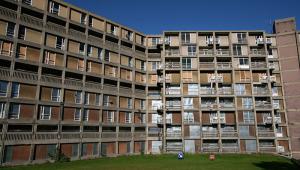The Resolution Foundation highlighted concerns that official sources publish “quite different inequality figures”.
Its Unequal Results report argued that the Department for Work and Pensions and Office for National Statistics had “notably disagreed at times” on whether inequality is rising or falling.
The report recommended addressing these contradictions by reforming both the data selected for measuring inequality and how this data is collected.
Headline economic measures like GDP and unemployment are “not sufficient” for understanding inequality, the think-tank said, and should be replaced by data based on household income, which represents a “crucial metric of economic well-being”.
This would provide more robust information about how income is distributed across the economy.
With extra investment government bodies could collaborate and “attain the high standards the public would expect” by the end of the decade.
However, the report also acknowledged that the surveys used to collect statistics on household income have limitations. It recommended that the ONS bring some of its methodology in line with that used by the DWP to allow comparison across the two bodies. The departments were also urged to explore whether they could eventually combine their datasets.
In addition, the report warned that attempts to measure household income were undermined by particularly weak data on top earners. Even the DWP’s measure for the wealthiest households, which includes adjustments based on tax data from HMRC, is described as “crude, covers only the very top of the distribution, is based on projections rather than outturn data, has varied slightly over time, and is partially undocumented”.
“Both the ONS and DWP, working with HMRC, must be given the resources to update and improve on their current methods as soon as possible”, the Resolution Foundation said.
In a blog accompanying the report, its author Adam Corlett said: “Although GDP, employment and average earnings are (rightly) key economic barometers, household incomes and inequalities are indispensable measures of living standards.
“Indeed, there has been increased recognition across the world of the need for economic statistics to give more emphasis to the distribution of growth as well as averages. Household survey data has proven invaluable for assessing the challenges facing the UK and for measuring the impact of policy changes”.
Corlett suggested UK data is as good as it could be, adding: “It is not. Worse, perhaps, two official sources have published quite different inequality figures.”











